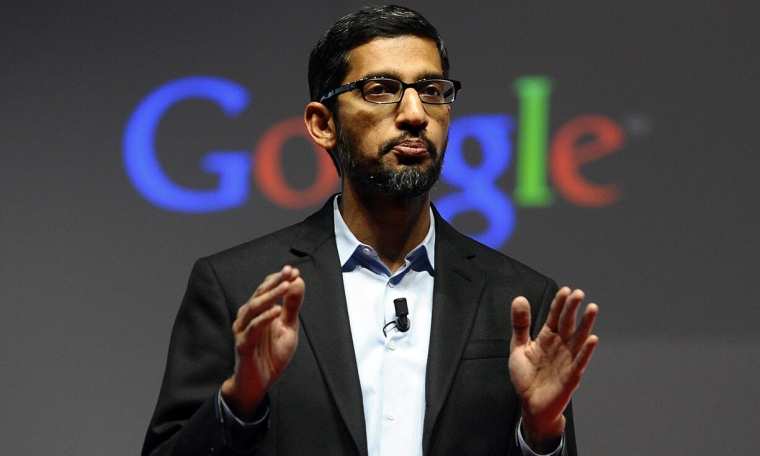Tech giant Google has finally come to its senses and realized that it should update and adapt its products and services by providing generative AI technology in its most popular search engine.
As a result, Google CEO Sundar Pichai recently confirmed in a Wall Street Journal report that conversational artificial intelligence features will be included in its flagship search engine as the company reels under pressure from such companies as ChatGPT and other emerging chatbots.
“Advances in AI would supercharge Google’s ability to answer an array of search queries,” Pichai said.
Pichai, who also heads Google’s parent company Alphabet, dismissed fears posed by Google’s critics that it would pose a serious threat to their search engine business, which accounts for over half of the company’s revenues.
Instead, the Google CEO stressed generative AI would further enhance the user experience of Google search and provide ‘the opportunity space, which for him is more significant than the huge interest in generative AI like ChatGPT now.
In February, Google launched Bard, a generative AI chatbot that is meant to rival OpenAI’s ChatGPT for select users. But before it even made waves among the millions of users eager to see what artificial intelligence magic it could conjure up, Bard hit a few snags by showing weird responses and acting rudely after some prompts.
Last month, Google also announced that it was launching Bard AI in the United States and the United Kingdom, to be followed by releases in other key locations around the world.
“Bard seeks to combine the breadth of the world’s knowledge with the power, intelligence, and creativity of our large language models,” the company said in a blog post.
In addition to investor pressure to cut expenses, Mr. Pichai has been grappling with one of the largest challenges to Google’s main business in years since Microsoft, its fiercest rival, has already used the technology of OpenAi’s ChatGPT system in its Bing search engine.
Back in January, Alphabet also disclosed to investors that it had conducted its largest-ever layoffs by letting go of over 12,000 employees, or 6% of its workforce. Concerns about inflation and the recession have also prompted other IT businesses to make cuts.
Google is no stranger to utilizing generative AI. In fact, Google has a long history of employing AI to enhance the search for billions of users. One of their initial transformer models, BERT, was ground-breaking in its ability to comprehend the nuances of the spoken language.
Another early AI model, MUM, which is 1,000 times more effective than BERT and has next-level and multilingual information comprehension, was released by the company two years ago. It can identify important points in videos and deliver crucial information, including crisis help, in more languages and is 1,000 times more potent than BERT.
Now with Bard AI, Google wants to join the already narrowing race in artificial intelligence technology among big tech firms.
“Whether it’s applying AI to radically transform our own products or making these powerful tools available to others, we’ll continue to be bold with innovation and responsible in our approach. And it’s just the beginning—more to come in all of these areas in the weeks and months ahead,” Pichai said.
Read More Stories: Elon Musk, Steve Wozniak sign letter seeking a pause in AI experiments due to significant dangers
